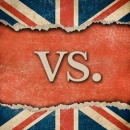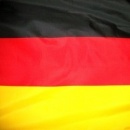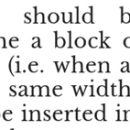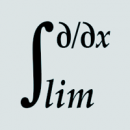 |
Fire in the hole – meaning and origin
Everyone who has ever played a first person shooter in English will know the expression “fire in the hole”, used by your fellow fighters (...)
November 17, 2013 – Jakub Marian – English
|
 |
“In the picture” / “on the picture”; “in a photo” / “on a photo” in English
The equivalent expression in many languages employs a preposition translated as “on” in most other contexts (e.g. “sur” in French). In (...)
November 14, 2013 – Jakub Marian – English
|
 |
English verbs that are the same in the present tense and in the past tense
Most of the commonly used English verbs are irregular. If the past tense and the past participle differ from the present tense, it is (...)
November 10, 2013 – Jakub Marian – English
|
 |
“A lot of is” or “a lot of are” in English
The usage of singular and plural verbs in English is sometimes more complicated than in other languages. One example of this phenomenon is (...)
November 8, 2013 – Jakub Marian – English
|
 |
‘He or she’ vs. ‘they’ in English
Traditionally, in English, when you had to use a pronoun for a person whose sex was unknown because it had been previously referred to as (...)
November 5, 2013 – Jakub Marian – English
|
By the way, have you already seen my brand new web app for non-native speakers of English? It's based on reading texts and learning by having all meanings, pronunciations, grammar forms etc. easily accessible. It looks like this:
 |
‘Auf der Webseite’ or ‘an der Webseite’ in German
One of the trickiest parts in language learning is translation of prepositions. In German, when there’s something written on a website, (...)
November 4, 2013 – Jakub Marian – German
|
 |
Fix text rendered too large in Chrome on Android (as a developer)
I have noticed a problem with text on this website being rendered much larger than it should in Chrome running on Android. For some (...)
November 2, 2013 – Jakub Marian – Blog
|
 |
Hyphen, minus, en-dash, and em-dash: difference and usage in English
These four little characters: “‐”, “−”, “–”, and “—”, often get confused. Most computer users use just a single character, “-”, the so-called hyphen-minus (the usual minus character you have on your keyboard), which is, technically, different from all four. (...)
|
 |
Render LaTeX in Wikipedia using Mathjax
Let’s face it—mathematical expressions rendered as images look ugly, especially in inline formulas. Also, if you, like me, have all (...)
|
 |
Alpha, Bravo, Charlie – what is it?
Briefly put, Alpha, Bravo, Charlie, etc., are words used in spelling of the 26 letters of the Latin (resp. English) alphabet. They were (...)
October 24, 2013 – Jakub Marian – English
|
